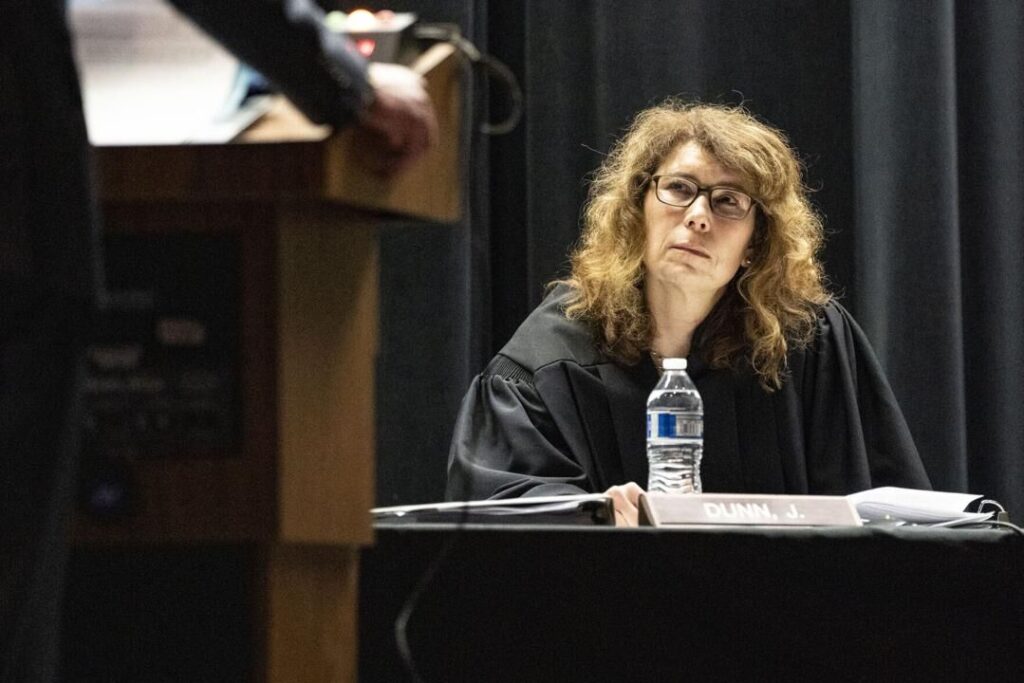Despite multiple errors, appeals court upholds Arapahoe County drunk driving convictions
Even though an Arapahoe County judge improperly restricted questioning about a witness’s personal incentives to testify and gave a “manifestly unfair” jury instruction, Colorado’s second-highest court upheld a woman’s drunk driving convictions last week.
Jurors convicted Lisa Ann Woodward in 2021 of vehicular assault and driving under the influence after she drove out of a bar’s parking lot and collided with another car. Woodward’s defense at trial was that her passenger was actually driving the vehicle, not her.
Woodward raised several arguments on appeal, and a three-judge Court of Appeals panel found merit to some of them.
First, Woodward claimed District Court Judge Joseph R. Whitfield Jr. wrongly prevented the defense from informing jurors about one witness’s personal stake in the outcome of the trial.
Woodward’s passenger sustained injuries in the collision, but she did not have health insurance and could not afford the physical therapy her doctors recommended. During cross-examination, Woodward’s attorney attempted to ask the passenger if she was aware Woodward would be required to pay her financial restitution if the jury rendered a guilty verdict.
The prosecution objected, leading the defense to argue the passenger’s financial stake in a conviction was relevant to her credibility. Whitfield responded that he had a problem with questioning the witness about the effects of a conviction, calling it a “sentencing issue.”
He allowed the defense to ask limited questions of the witness about her medical expenses, but not “in any way connect that to whether or not Ms. Woodward is convicted in the case or not.”
The Court of Appeals concluded it was a mistake to block questioning about the witness’s financial interest in the outcome of Woodward’s trial.
“We hold that, in a case where, as here, the victim’s ability to obtain reimbursement for her unpaid medical expenses is directly tied to the defendant’s conviction, a court must allow cross-examination regarding such an interest,” wrote Judge Lino S. Lipinsky de Orlov in the March 13 opinion.
Second, the appellate panel agreed that Whitfield incorrectly barred the defense from informing the jury that the passenger had an active warrant in Arapahoe County and was being prosecuted by the same district attorney’s office as Woodward.
Lipinsky cited his own prior opinion and a related decision from the Colorado Supreme Court, which held that a witness’s incentives to testify as the prosecution wants are relevant when they may be trying to curry favor with the district attorney’s office in their own case.
A warrant in the same jurisdiction “is always relevant to show that the witness’s testimony might be influenced by a promise for, or hope or expectation of, immunity or leniency,” Lipinsky wrote.
Finally, the appellate panel agreed Whitfield gave a misleading instruction to the jury about Colorado’s “expressed consent” law. Under the law, motorists have automatically consented to take a blood or breath test if an officer has probable cause to suspect them of impaired driving. If drivers refuse to test within two hours of being stopped, the refusal can be used against them at trial and is grounds for revoking their driver license.
The prosecution proposed an instruction informing jurors they could consider whether “Ms. Woodward refused to take and complete, and to cooperate in the taking and completing of a chemical test of her breath or blood.”
Although the arresting officer’s body-worn camera footage could have led jurors to conclude Woodward refused to take a chemical test, Lipinsky noted that jurors could have also found Woodward changed her mind and was willing to take the test after all — but the officer declined to let her. Because the state Supreme Court last year ruled that suspected drunk drivers do have the right to change their minds after initially refusing, Lipinsky wrote that it was problematic the jury instruction did not address that scenario.
“By mentioning one and not the other, the court did what it should not have done — it ‘select(ed) the salient points in the evidence’ and ‘specifically call(ed) them to the attention of the jurors,” he wrote. “For these reasons, we hold that the refusal instruction was manifestly unfair because it emphasized evidence of Woodward’s purported refusal without mention of the claimed recantation.”
However, the panel ultimately concluded none of the errors warranted a new trial for Woodward. Her intoxication at the time of the collision was undisputed, and there was no evidence suggesting anyone but Woodward was the driver.
Consequently, the Court of Appeals upheld her convictions.
The case is People v. Woodward.













